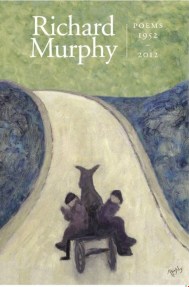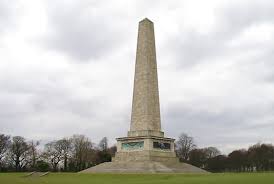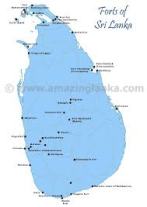Richard Murphy, three iambs of whose sonnet ‘Sri Lanka’ you can see above, is a poet of Anglo-Irish heritage. I had never heard of him but was pleased to be invited to an English Department research seminar on 8th March at UCC. The speaker was Benjamin Keatinge, associate professor at SEEU, and his talk was subtitled ‘Richard Murphy’s Sri Lankan Poems and Irish Postcolonial Studies’.

We are currently studying Colonialism and Post-Colonialism as part of our MA in Irish Writing and Film so it seemed an ideal opportunity to learn how Keatinge approached his subject.
We heard how Murphy was born in Ireland but spent much of his childhood in Sri Lanka. His father was the last mayor of the capital city, Colombo. When his parents left diplomatic service they retired to Southern Rhodesia. Murphy wrote to his mother saying that he felt that they had made a wise decision. His father and mother seem to have been ex-pat through and through and accustomed to a certain standard of living. Murphy has been restless too, finally returning to Sri Lanka where he is living into his nineties in a house on an old tea plantation and is looked after by a Sri Lankan family. It sounds patrician, and even imperialistic, but it would be presumptuous for me to suggest that. His reasons for spending his last years in this manner may be to do with the fact that there is an octagonal building there for writing and meditation. Or, as he wrote in 1984 on returning to Sri Lanka, he just loves the ‘smell of decay’ which comes from a warm, moist climate.
“I’m looking across a paddy field cultivated by buffaloes. A hill of jungle and palm trees rises steeply to a Buddhist temple on the summit. The warmth, exotic birdcalls, and the smell of new rain on a road of dust, remind me of my early, strict and pampered childhood in Ceylon, when this country, before gaining independence in 1948, was a resplendent jewel in the crown of the British Empire.” (Interview with JP O’Malley 2013)
In his early manhood Murphy lived on the West Coast of Ireland, writing Sailing to an Island (1955) which Michael Longley called Murphy’s ‘milestone collection‘. This included ‘The Last Galway Hooker’ and ‘The Cleggan Disaster’, both, like the title poem, narrative pieces. According to Longley, Murphy’s loveliest poems are in a later collection, High Island, written between 1967 and 1973.
In spite of restoring a Galway hooker and running it as a fishing boat, Murphy seems never to have felt fully accepted in the West of Ireland. He thinks that he would have always be regarded as a West Brit. In the interview with JP O’Malley, Murphy stated: “I was often criticised for my forlorn attempt to shed my colonial past and implant myself in the 99% Republican West of Ireland. But because I was unalterably Anglo-Irish it seemed I was doomed to fail”.
Keatinge suggests that Murphy had a ‘quarrel with his own inheritance’. That he sees ‘himself as a victim as well as an inheritor of colonialism’. I find it poignant thinking of Murphy – sexually ambivalent, ancestrally misbegotten, and spatially unsettled – his life seems to have been exceedingly liminal. For further elucidation you might read Maurice Harmon’s 2007 ‘In Good Form’, an interesting account of Murphy’s life and work and/or his own piece ‘Notes for Sonnets’ published in The Poetry Ireland Review (2011).

What I find most interesting about Murphy is his use of the sonnet form. I have always regarded this structure as a sort of corset for composing poems. If you can get into it, it provides an elegant silhouette. But if you are flabby or loose you’d be better off leaving it alone.
In his journal ‘Notes for Sonnets’ Murphy writes to himself: ‘Have all possible cadences been tried and exhausted in the sonnet? … Ask this question in the Wellington sonnets … ? Are you square bashing in rhymed metrical verse … ? constrained by the left right left right of the metre and the rhyme, the platoons of polished boots on the parade?’
Wellington Testimonial
Needling my native sky over Phoenix Park
I obelize the victory of wit
That let my polished Anglo-Irish mark
Be made by Smirke as a colossal spit.
Properly dressed for an obsolete parade,
Devoid of mystery, no winding stair,
Threading my unvermiculated head,
I’ve kept my feet, but lost my nosey flair.
My life was work, my work was taking life
To be a monument. The dead have won
Capital headlines. Look at Ireland
Rife with maxims. Need you ask what good I’ve done?
My sole point in this evergreen oak aisle
Is to maintain a clear laconic style.
December 1982

The traditional English form of the sonnet is an entirely appropriate choice for this poem as although Wellington (as was Murphy) was born in Ireland he was educated (as was Murphy) in England. Murphy writes in ‘Notes for Sonnets’ that he and Wellington were sent to school in England … to train [our] tongues and teach [us] manners’.
The form is militaristic in its structure which makes it suitable for its content. The tight metre and rhyme scheme are a perfect fit for the sardonic wit that both Murphy, who wrote the sonnet, and the monument itself, which voices the sonnet, wish to display. An analysis of the poem would need to focus on metre and enjambment as well as diction and double meanings. This blog, however, is centred on a much later poem ‘Sri Lanka’.
There is a constant tension in Murphy’s work between his Anglo-Irish/ex-pat background/education and his intellectual/emotional choice of Republicanism/Irishness. If we look again at the title that Keatinge gives his paper ‘To seem a white king’s gem’ we will immediately notice the reference to ‘this precious stone set in a silver sea’ from Richard II. But, the most significant word might be ‘seem’. Just like the island, Murphy may not be what he seems.
Here is the sonnet.
Sri Lanka

Being nearly heart-shaped made me seem a ham
On early spice trade navigators’ charts.
Tinctured with cinnamon, peppered with forts,
To be eaten up under a strong brand name
Like Taprobane, Serendip, Tenarisim –
Copper-palmed lotus island slave resorts –
And I succumbed to lordly polished arts
That cut me down to seem a white king’s gem,
A star-sapphire teardrop India shed
On old school maps a lighthouse of retorts
Flashing from head to head. My leonine blood
Throbbed wildly when resplendent freedom came
Mouthing pearl tropes with Pali counterparts,
Exalted, flawed; and made me seem as I am.
Fortuitously, if unexpectedly, there is a recording of Murphy reading this poem on RTÉ Radio 1. I think the clarity of his diction is extraordinary. The schooling of his tongue clearly worked.
Murphy explains how the poem is voiced by the island itself. That maybe Murphy’s unique characteristic. He has insensate phenomena voice his poems. I don’t like this actually. I can’t help thinking that it is an aspect of Murphy’s unease with himself and, perhaps, with other human beings. But it is, after all, only people who can read and write poems. They are not much use to animals, buildings or islands. And it seems to me to be an artifice too far to introduce into a form of art which is already sufficiently highbrow. The poems, like their writer, are infused with the flavours of English public school education.
For me ‘Sri Lanka’ has no scent of the island itself and could barely be understood by someone who had not matriculated from a top English university (Oxford). The slant rhymes, hyphenated enjambment, paradoxes/oxymorons and diction do, however, speak of an island which has been interfered with by many colonising powers before finding independence.
Works cited
Harmon, M. ‘Richard Murphy in Good Form’. Poetry Ireland News. Sep/Oct. 2007. Web. 12 Mar 2017.
Keatinge, B. ‘To Seem a White King’s Gem: Richard Murphy’s Sri Lankan Poems and Irish Postcolonial Studies’. Reading. 8 Mar 2017.
Longley, M. ‘The Pleasure Ground: Poems 1952-2012 by Richard Murphy’. The Irish Times. 25 Sep 2013. Web. 13 Mar 2017.
Murphy, R. Richard Murphy: Collected Poems. Wake Forest University Press, 2000. Print.
– High Island:New and Selected Poems. London: Faber, 1974. Print.
– ‘Notes for Sonnets’. The Poetry Ireland Review, No. 104. Sep 2011. 92-104. Print.
– Sailing to an Island. Dublin: Dolmen Press, 1955. Print.
– ‘Sri Lanka’. RTÉ radio 1. Poetry Programme. 23 May 2015. Radio. 12 Mar 2017.
O’Malley, JP. ‘A Rebellious Son of the Ascendancy Who Found His Voice in Connemara’. Irish Examiner. 21 Sep 2013. Web. 8 Mar 2017.
Richard Murphy died at home in Sri Lanka on 30th January 2018. He was 90.
“Never mind the bum notes, keep the music going until the end.” (Murphy, R. Yeats International Summer School 1970)
One thought on “‘To seem a white king’s gem’”